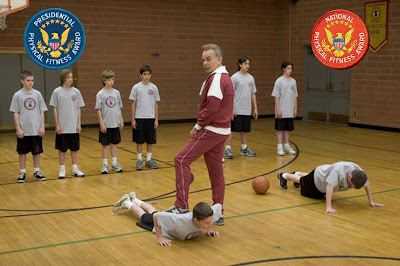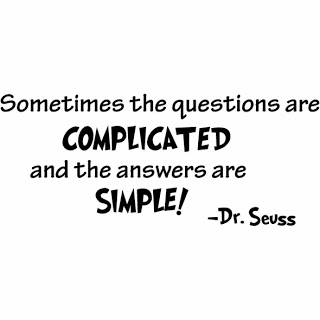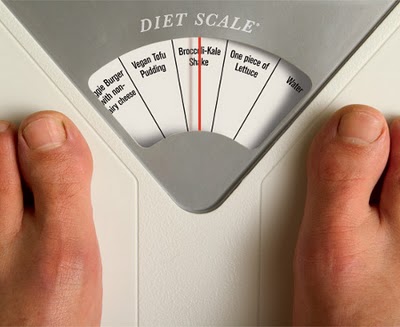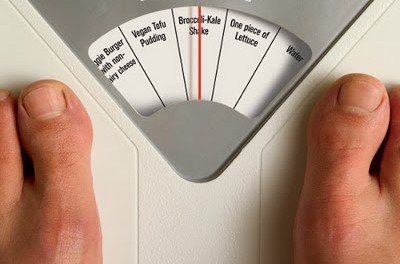The lime in the coconut is purely optional.
 Before I even start explaining what I’ve done here, I want to make it absolutely clear that this analysis is fairly casual, and that by no means have I followed a text-book rigourous protocol to do it because if I HAD done that, you wouldn’t be reading this for another year while it waited in the publication queue of some nutrition journal. However, I will say that even with that disclaimer, I’ve probably been a bit more rigourous than a lot of crap I’ve read, so…well, there really isn’t anything more to say, is there?
Before I even start explaining what I’ve done here, I want to make it absolutely clear that this analysis is fairly casual, and that by no means have I followed a text-book rigourous protocol to do it because if I HAD done that, you wouldn’t be reading this for another year while it waited in the publication queue of some nutrition journal. However, I will say that even with that disclaimer, I’ve probably been a bit more rigourous than a lot of crap I’ve read, so…well, there really isn’t anything more to say, is there?
Back in the early 2000’s there was a small surge of medium-chain-triglyercide (MCT) research that petered out around 2003ish. While there were a fair number of human trials looking at MCT’s and lipid profiles, there were also a handful of trials that also examined the effect of MCTs on body composition, specifically fat loss. And while MCTs are used in some supplements and meal-replacement shakes, there hasn’t been a widespread adoption of MCTs like there was when olive oil got really big (also in the early 2000’s), and I have to say that it’s not entirely clear as to why. Part of the reason might have been the sparseness of human trials involving MCTs compared to those looking at olive oil. Since 2009, however, there appears to be another blip of human trials looking at MCTs, and specifically at coconut oil, or mixes that involve a fair amount of coconut oil. Read More...
Bias doesn’t always work against you (or why gym class might not be all it’s cracked up to be)

This blog entry’s study comes from my friend Brad Pilon, who said, and-I-quote, “I wanna get you back to dissecting papers on your blog,” which jolted me into realizing I haven’t in a long time.
One idea that Brad and I have been talking about (apart from trying to stick to manipulating factors that make LARGE contributions to progress) has been the notion that diet and exercise, though both important for “health” and “fitness”, may have little contributions towards their counterpart body components. Diet seems to have the greatest impact on body fat, while exercise (and more specifically, resistance exercise) seems to have a greater impact on lean body mass. While one CAN use exercise to assist in losing body fat, I think there is probably some truth in the saying, “You can’t out-train a bad diet,” and similarly, I would argue that at most levels, you probably can’t eat yourself more muscles, otherwise, there would an epidemic of Ah-nolds in America, not obese people. Read More...
Everything I needed to know as a physician about weight loss, I learned before grad school.

When confronted with a controversial topic online, I don’t like to write gut-reaction blog posts. I’ve been digesting this one for a while (perhaps too long as the hype seems to have settled considerably and the wave has all but passed). My perspective on weight-loss, fitness and medicine is somewhat unique. Regardless of whether it’s considered reconstructive or “cosmetic”, patient come to see me not only for functional problems, but aesthetic ones as well. In my world, the distinction between form and function is not a sharp line. Every “reconstructive” surgery is an aesthetic one, or at least, has an aesthetic component. While I don’t necessarily get a lot of questions about diet and heart disease, you can bet that if it has to do with fat loss or appearance and diet/activity, I’ve gotten the question in some shape or form.
So when posed with the question, “How much should a physician know about nutrition and fitness?” I can’t help but retort with the question, “How much does anyone really know about nutrition and fitness?” and the more controversial, “How much of the _additional_ information that the purported nutrition and diet ‘experts’ know is really necessary?” Read More...
Moment of weakness, act of strength

I’m in what is probably the most stressful period of my life right now, studying for my Canadian board exams. This means that I’m letting my “diet” slip to cope. The other day, while I feeling sorry for myself, I bought a bulk bag of chocolate mini-eggs. We’re not talking the package that you can hold in one hand; we’re talking the package that basically has a handle.
I’m not so far over the edge that I would eat a whole sack of chocolate eggs in one sitting yet. Give me a few weeks. But after a few handfuls, I realized that I had succumbed to a moment of weakness and that eating (eventually) this bag of delicious chocolate eggs really wasn’t in my best interest. There’s coping (a small package of chocolate eggs), and then there’s overcompensation. Read More...
Burn the boats: Why you’re going to fail. Or not.
 I’ve been studying and reading health research for decades, and this post is just a bit of my biased gestalt on the state of affairs on obesity, obesity research and the new hope that arises within a TON of people every January.
I’ve been studying and reading health research for decades, and this post is just a bit of my biased gestalt on the state of affairs on obesity, obesity research and the new hope that arises within a TON of people every January.
The preponderance of obesity research indicates that most of you will fail at achieving your goal of weight loss this year; and that of those of you who succeed at achieving the goal within this particular year will ultimately fail because the data generally shows that the weight comes back, resulting in a net effect of zero. What we don’t fully understand still, is why this failure happens; and I’m not sure that we’re going to truly unearth it anytime soon enough to make a difference in your resolution this year. Read More...
Why isn’t overeating an eating disorder?
My position on the proposed “Muscle Dysmorphia” remains unchanged. I do not feel it belongs in the DSM in its current state, largely due to the subjective criteria for its proposed diagnostic criteria, which depends entirely on whether the diagnostician feels the patient is already “muscular enough”. Read More...
Anecdotal Evidence-Based Fitness
At some point in every fitness-writer/blogger’s lifespan, there comes a point where the rubber has to meet the road. We write about fitness and nutrition and body-image, but I’m sure there are many bloggers who can (and I apologize for the use of two cliches in two sentences) talk the talk, but can’t, don’t or won’t walk the walk.
And at some point in every fitness-writer/blogger’s lifespan, there has to be come form of accountability for what he or she writes. A proponent of supplement X should probably be using supplement X and not just writing in favour of it to get paid if they really think it works. A writer who believes in workout A enough to rave about it should probably be able to show that it works at least for themselves. It’s of little value to say, “X totally works and everyone should be using X, but I don’t.” Read More...
Not evidence-based, but still a neat foodhack
Ever find yourself crushing a bag of snack food? Part of the reason why you can is because it’s there. Not only is it there, it’s immediately accessible. So here’s an idea that you can try while still keeping your sanity.
For some people, certain foods are hair-trigger foods. These are foods you can’t resist, no matter how hard you try. They’re the foods you’ll go out of your way to eat, and over which you have essentially no control (for me, these are profiteroles of any variety, chocolate-covered or not). This foodhack is not for those foods. Those foods are foods you should probably not have in your home except under specific conditions and quantities. Read More...
The Information Diet
 The New Year season is full of resolutions to diet for weight loss. It’s also one of the most fruitful seasons for merchants who produce weight-loss products to add to their bottom line. They’re easy to find and getting more and more clever with each passing year. They’re on Google Ads, banner ads, Facebook, Twitter, youTube, and infiltrate virtually every other on-line media you use on a daily basis.
The New Year season is full of resolutions to diet for weight loss. It’s also one of the most fruitful seasons for merchants who produce weight-loss products to add to their bottom line. They’re easy to find and getting more and more clever with each passing year. They’re on Google Ads, banner ads, Facebook, Twitter, youTube, and infiltrate virtually every other on-line media you use on a daily basis.
This easily leads to information overload, as well as fear-based marketing: How do you choose from all of the products available? How do you sift through the inundating assault of those massively lengthy webpages that have PARAGRAPHS of text and testimonials? And worse yet, how do you know that one of those products isn’t better than the one you’re going to buy? Read More...
Fear of loss: How the fitness claims get you
 All through my undergraduate “career”, I worked in labs. Just as there are gym rats, I was a lab rat. Great experience for me. Okay pay for a student. But when I finished my undergrad, I already knew I was going to start my Masters in the fall. And at the time, I also felt that I had never really earned an honest dollar. I had never set foot outside the Ivory Tower and so I wanted to experience what a “joe job” might be like. My first choice was to be a waiter–pretty social, they seem to have a lot of fun for the most part, and the pay was probably better than my lab stipends. But in Toronto, getting a job as a waiter is tough competition. In the end, I lucked out, but there was a period of a month or so where I hadn’t found that job.
All through my undergraduate “career”, I worked in labs. Just as there are gym rats, I was a lab rat. Great experience for me. Okay pay for a student. But when I finished my undergrad, I already knew I was going to start my Masters in the fall. And at the time, I also felt that I had never really earned an honest dollar. I had never set foot outside the Ivory Tower and so I wanted to experience what a “joe job” might be like. My first choice was to be a waiter–pretty social, they seem to have a lot of fun for the most part, and the pay was probably better than my lab stipends. But in Toronto, getting a job as a waiter is tough competition. In the end, I lucked out, but there was a period of a month or so where I hadn’t found that job.
So what’s a 23 year old, freshly graduated biology major to do? Hit the want ads, of course. What happened next is a story unto itself, but the crux of the story is that I ended up doing a short stint as a door-to-door salesman with a franchise of one of the largest direct sales companies in the world. Read More...
